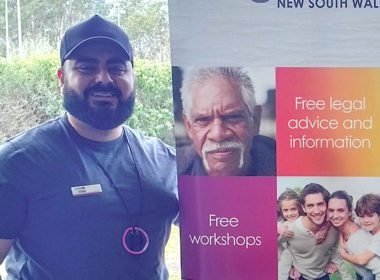Peter Campbell is a partner at HWL Ebsworth Lawyers and was on the Best Lawyers list for 2020. He has developed a national reputation in the area of media law and has acted for a number of mainstream and digital media networks on many defamation matters. Campbell tells us about an early defamation case that cemented his career path.
The case concerned a militant white supremacist group, National Action, that was operating in Australia. The group became well known in the 90s after holding numerous public rallies that featured Nazi symbolism. They got a lot of publicity and there was growing public concern about the violent messages and actions of the group.
Messenger Newspapers, part of News Corp, published a satirical editorial called “Little Mikey and the Big Bad Racists”. The article was written by the editor-in-chief at the time, Des Ryan. Ryan’s piece ridiculed National Action and its leader, Michael Brander. It portrayed them as little boys in costumes parading the streets. The intention was to make the group seem so ridiculous that no one would be scared of them. It was designed to provoke a response and that’s exactly what it did.
We were acting for Messenger Newspapers and Des Ryan. Michael Brander claimed the article defamed him and commenced proceedings in 1995. There were lots of pleading arguments initially as Brander pleaded imputations based on the literal words (e.g. they wore green leotards). Following a few false starts, there were finally some imputations pleaded that were at least capable of being defamatory (e.g. Brander was a racist).
After many twists, turns and troubling incidents, we finally got to trial. Brander argued he couldn’t be responsible for the actions of people attending National Action rallies (e.g. giving Nazi salutes). We were able to identify one of the main people giving salutes was his mother and extract that admission from him in cross-examination. Ultimately, the magistrate decided in our favour and dismissed the claim, finding that the plaintiff and National Action were in fact racist. We established this not only by highlighting the nature of the messages and actions of National Action, but also by calling people from the community and asking them what Brander’s reputation was. They all said his reputation was that he was racist.
Over and above the publicity the trial attracted, the case was notable for the fact that, at the time, the law was being developed in relation to the freedom of communications and whether there were constitutional rights to free speech in Australia. A couple of years into the proceedings, the decision in Lange v ABC (1997) came down, which is a case about the protection of political speech. Brander was not only leader of National Action but was also a political candidate. We were basically one of the first cases to apply that Lange decision.
Brander appealed to the Supreme Court, which found that some of the more bizarre imputations were made out but wouldn’t be protected by the political discussion defence. We appealed to the Full Court, which overturned the Supreme Court’s decision and dismissed the plaintiff’s case again. Brander lodged an application for special leave to appeal to the High Court but withdrew it before the hearing.
What was important was that the editorial had the very effect Des Ryan had hoped for – it changed the way the public saw this group. The fear and intimidation the group had managed to generate largely disappeared and, by securing a finding the plaintiff was racist, he could be officially described that way thereafter. The case reinforced how a well-crafted media strategy and clever reporting can make a real difference.




